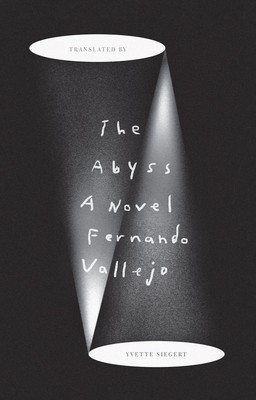
- We will send in 10–14 business days.
- Author: Fernando Vallejo
- Publisher: New Directions Publishing Corporation
- ISBN-10: 0811238512
- ISBN-13: 9780811238519
- Format: 13.4 x 20.4 x 1.3 cm, softcover
- Language: English
- SAVE -10% with code: EXTRA
Reviews
Description
Winner of the Romulo Gallego Prize, The Abyss is a caustic masterwork of incredible power and force. The novel tells about the demise of a crumbling house in Medellin, Colombia. Fernando, a writer, visits his brother DarÃÂo, who is dying of AIDS there. Recounting their wild philandering and trying to come to terms with his beloved brother's inevitable death, Fernando rants against the political forces that cause so much suffering. He hurls vitriolic, savagely funny insults at his country ("I wipe my ass with the new Constitution of Colombia") and at his mother ("the Crazy Bitch") who has given birth to him and his many siblings. Within this firestorm of pain, Fernando manages to get across much beauty and truth: that all love is painful and washed in pure sorrow. And yet he loves his sick brother and the family's Santa Anita farm (the lost paradise of his childhood where azaleas bloomed); and he even loves his country, now torn to shreds. Always, in this savage masterpiece about loss--as if in the eye of Vallejo's hurricane of talent--we are in the curiously comforting workings of memory and of the writing process itself, as, recollecting time, it offers immortality.
- Author: Fernando Vallejo
- Publisher: New Directions Publishing Corporation
- ISBN-10: 0811238512
- ISBN-13: 9780811238519
- Format: 13.4 x 20.4 x 1.3 cm, softcover
- Language: English English
Winner of the Romulo Gallego Prize, The Abyss is a caustic masterwork of incredible power and force. The novel tells about the demise of a crumbling house in Medellin, Colombia. Fernando, a writer, visits his brother DarÃÂo, who is dying of AIDS there. Recounting their wild philandering and trying to come to terms with his beloved brother's inevitable death, Fernando rants against the political forces that cause so much suffering. He hurls vitriolic, savagely funny insults at his country ("I wipe my ass with the new Constitution of Colombia") and at his mother ("the Crazy Bitch") who has given birth to him and his many siblings. Within this firestorm of pain, Fernando manages to get across much beauty and truth: that all love is painful and washed in pure sorrow. And yet he loves his sick brother and the family's Santa Anita farm (the lost paradise of his childhood where azaleas bloomed); and he even loves his country, now torn to shreds. Always, in this savage masterpiece about loss--as if in the eye of Vallejo's hurricane of talent--we are in the curiously comforting workings of memory and of the writing process itself, as, recollecting time, it offers immortality.


Reviews